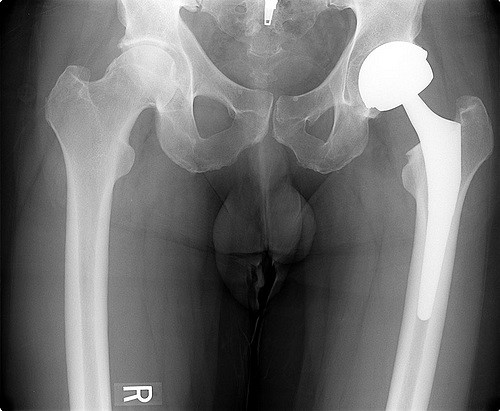Public debates about health financing generally occur within a narrow frame. There are alarmist projections about the burden of pharmaceutical expenditure and about the demands an ageing population will place on our already-strained health services. And there are the usual policy responses in terms of safety nets, co-payments and support for private health insurance.
It is refreshing to see thinking from another direction. The idea of medical savings accounts (MSAs) has arisen from a paper commissioned by Medicines Australia, and produced by the Allen Consulting Group.
MSAs are similar to compulsory superannuation. We would be required to put aside a proportion of our income each year into an accumulating account, which could be spent only on health care. In our younger years, when most of us enjoy good health, the account balances would accumulate; in our old age as our income falls and our health care needs mount we would draw from these accounts. They would not entirely displace Medicare; there would still be a safety net for those with greater needs.
At first sight they look attractive, for two reasons.
First, it makes sense to set aside funds to finance our aged care. There is a good deal of research showing we are inconsistent in our personal finances – we do not save adequately for long term personal needs, even though we know it would be in our interests to do so. Even a person who values autonomy may enter a binding contract which forces him or her to make quarantined savings for the future. Our acceptance of compulsory superannuation shows we are amenable to such paternalistic interventions.
Second, if we spend money from our own pockets, we will be more cautious and seek better value-for-money than if someone else – a private insurer or the government – pays the bill. In the terminology of insurers there is less ‘moral hazard’ when we spend our own money.
There are several problems with medical savings accounts, however.
First, while on average our health care needs increase as we age, the spread of health care needs is huge. Some age in good health, others suffer a multitude of debilitating conditions.
We could see many healthy old people with high balances in their MSAs, wondering how they can spend their accumulations – and over-enthusiastic specialists who could easily find ways to relieve them of their balances (another form of moral hazard). There would be many older people with high MSA account balances while they are living in comparative poverty. MSAs, particularly if mandated or encouraged through tax subsidies (as in the USA) tend to elevate ‘health care’ to be more worthy than other consumption that may have greater health or happiness benefits.
On the other side of the distribution, the most seriously ill will undoubtedly deplete their MSAs and have to draw on the safety net. This reintroduces the question of the government’s role in allocating health care, particularly the extent to which it should regulate expenditures and service delivery. Because of the nature of the distribution of health care needs, the government would remain the main funder of health care. International comparisons between countries with similar health outcomes also show that government involvement is necessary to keep health care costs under control. Governments can wield countervailing power against service providers to keep prices in check – a power which individuals lack.
Second, because MSAs concentrate means on older people, they may have the perverse effect of shifting resources from care of younger people (where the cost/benefit returns are high), to the care of older people (where the cost/benefit returns are generally lower). A similar effect would occur between the healthy and very sick at all ages. Healthy people with high balances would be encouraged to seek relatively trivial services, while the very sick, afraid of exhausting their MSAs, are more likely to economise their use of services. Again, this is the opposite of the desired effect.
Third, there is the problem of what to do with high balances. Are people to be permitted to pass them to their superannuation balances when they reach a certain age meaning they are not there when most likely needed? (Average health care needs rise steeply with age from about age 55 to 85). Do they pass to a person’s estate – which seems to be a fairly inequitable transfer? Do they pass to the government – a sound idea perhaps, but probably politically unacceptable?
Fourth, many older people have plenty of liquid or near-liquid assets (quite apart from superannuation). According to surveys the average of cash plus equity holdings among households with people aged 65-74 is $95,000. Many people are quite capable of managing without being forced into MSAs.
Fifth, in relation to the Allen proposal, Medicines Australia suggests that balances in MSAs could be used to purchase private health insurance. A proposal that is counter-productive, for it negates the moral hazard argument for having MSAs in the first place. It also adds to churning/transaction costs.
Sixth, there can be equity problems depending on the means used to encourage or compel people to contribute to MSAs. Some versions of the MSA approach rely on tax concessions. Such approaches can be highly regressive; in Australia’s pre-Medibank days the effective cost of health services was less for the wealthy because of tax concessions. A similar situation has now arisen as a result of the tax incentives for private insurance. Policy makers need to be mindful of the equity and allocative effects of health care funding mechanisms.
More generally, a health scheme is not simply a means for efficiently transferring resources to the health sector. Rather, it is the manifestation of a particular social philosophy. This was very clearly articulated in Canada in the report of an inquiry into Canadian Medicare:
Canadian Medicare is far more than just an administrative mechanism for paying medical bills. It is widely regarded as an important symbol of community, a concrete representation of mutual support and concern… it expresses the fundamental equality of Canadian citizens in the face of death and disease (Quoted from Evans R and Law M).
Many Australians would value Medicare for a similar reason. Others would support the scheme because it results in income redistribution from wealthy and healthy to sick and poor families. Possibly the most important effect of MSAs would be the undoing of this redistributive effect.
However, MSAs may appeal to many others who feel confident about their ability to manage their finances and their purchasing of medical care and who do not wish to see income redistributed.. Despite their self-image Australians probably rank as the least generous people in the western world. In a superb collection of cross national data Rodney Tiffen and Ross Gittins have recently documented that Australian social security transfers as a percentage of GDP are the smallest in the OECD; that relative and absolute poverty in Australia is worse in all but three countries; that the percentage of children in poverty is higher in Australia than any other country compared and that distribution of income is most unequal in Australia, even more so than in the USA.
MSAs, by shifting health expenditures into the private realm, would reduce community sharing. For the less wealthy and educated MSAs may generate anxiety over both their financial resources and the quality of their decision making when facing a medical crisis.
Nevertheless, the proposals for MSAs have the virtue of broadening what has been a narrow debate on health care, and they do raise some basic issues about intergenerational equity. They would partly overcome the actuarial problem of health insurance, public or private, being pay-as-you-go, rather than actuarially funded to cope with the needs of an ageing population. (The same issue is bugging Social Security in the USA.)
Actuarial funding – the accumulation of balances to cope with an ageing population – looks attractive from certain perspectives. Some would say that Medicare should be actuarially funded, perhaps with its one mini ‘future fund’. But before considering specific proposals such as MSAs we should be asking whether we want to replace pay-as-you go funding with actuarial funding.
We may find actuarial funding attractive, or we may decide the best thing a government can do for the next generation is to invest in necessary public goods so as to improve the productive capacity of the nation, and to ensure there are plenty of medical professionals being trained to cope with growing health care needs. That way the next generation will have the means to support pay-as-you-go health care funding.



